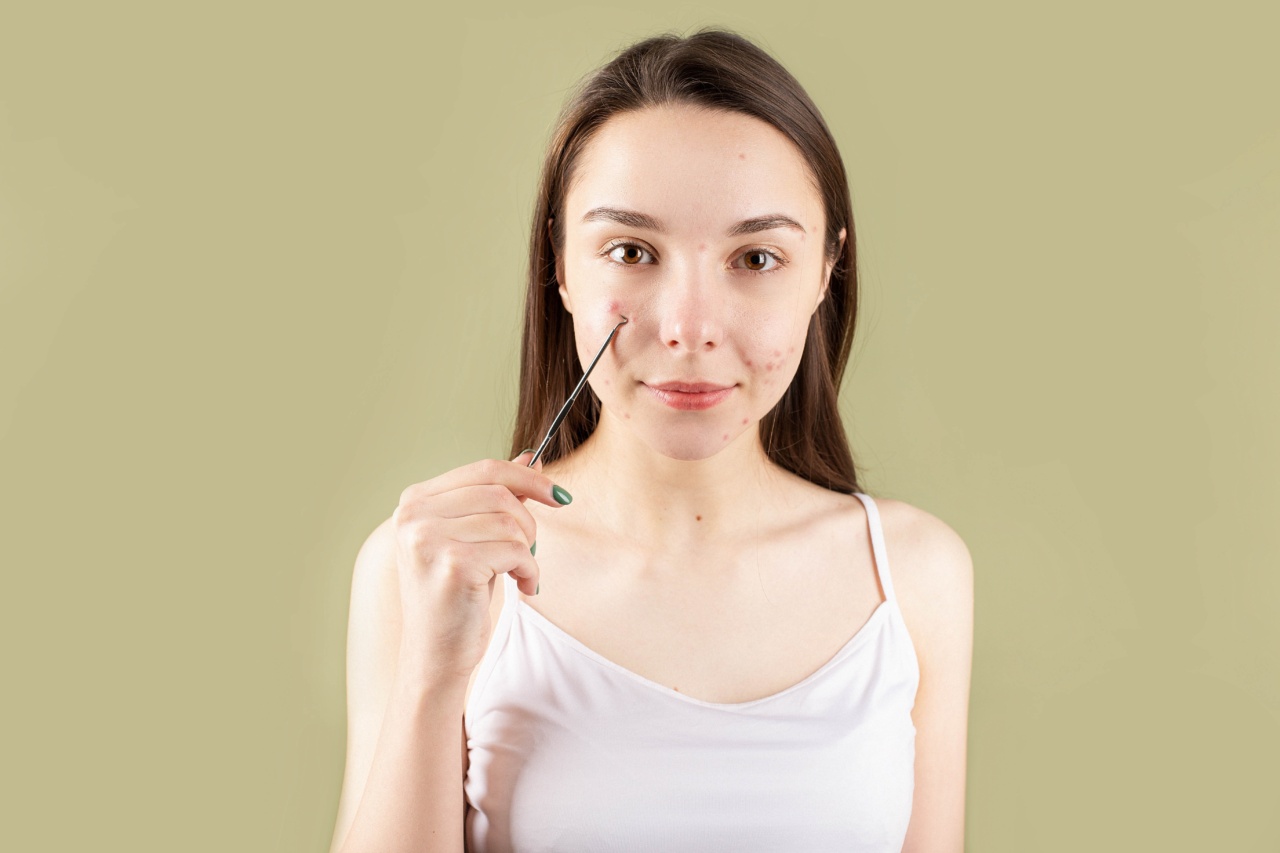Acne can be a frustrating and confidence-damaging skin condition that affects people of all ages. One common area where acne tends to appear is on the chin.
This article will delve into the causes of chin acne and provide effective treatments to help you achieve clearer, healthier skin.
The Causes of Acne on the Chin
Understanding the underlying causes of acne on the chin can help in finding the right treatment. Here are some factors that contribute to chin acne:.
Hormonal Imbalances
Hormonal imbalances, especially during puberty, pregnancy, or menstruation, can trigger chin acne. Fluctuations in hormone levels can increase sebum production, leading to clogged pores and subsequent breakouts.
Poor Skincare and Hygiene
Inadequate skincare routine and improper hygiene practices can exacerbate chin acne. Failing to cleanse the face regularly or using harsh, comedogenic products can clog pores and aggravate acne.
Diet and Lifestyle
Diet and lifestyle choices can also influence chin acne. Consuming high glycemic index foods, dairy products, or unhealthy fats may trigger acne breakouts. Stress and lack of sleep can also contribute to hormonal imbalances, worsening chin acne.
Treatment Options for Chin Acne
Now that we understand the potential causes of acne on the chin, let’s explore some effective treatments:.
1. Proper Skincare Routine
Establishing a consistent skincare routine is crucial in effectively treating chin acne. Cleanse your face twice daily using a gentle cleanser to remove dirt, oil, and bacteria that can clog pores.
Avoid scrubbing harshly, as it can irritate the skin and worsen acne.
2. Topical Treatments
Over-the-counter topical treatments containing benzoyl peroxide or salicylic acid can be effective in reducing chin acne. These ingredients help unclog pores, decrease inflammation, and kill bacteria.
Apply the treatment directly to the affected areas following the product instructions.
3. Prescription Medications
If over-the-counter treatments fail to improve chin acne, dermatologists may prescribe stronger medications. These may include topical retinoids, antibiotics, or hormonal therapies, depending on the severity and underlying causes of your acne.
4. Avoid Trigger Foods
Identify and avoid foods that seem to trigger your chin acne. Some common triggers include sugary and processed foods, dairy products, and foods high in unhealthy fats.
Opt for a balanced diet rich in fruits, vegetables, and whole grains to support overall skin health.
5. Stress Management
Chronic stress can worsen hormonal imbalances, leading to more frequent chin acne breakouts. Implement stress management techniques such as exercise, meditation, or deep breathing exercises to reduce stress levels and promote healthier skin.
6. Regular Exfoliation
Gently exfoliating your skin one to two times a week can help remove dead skin cells, unclog pores, and prevent future breakouts. Choose a gentle exfoliant suitable for your skin type and avoid excessive scrubbing, which can irritate the skin.
7. Keep Hands Away
Avoid touching your face, especially the chin area, as it can transfer bacteria from your hands to your skin and worsen acne. Additionally, popping or squeezing acne lesions can lead to scarring and further inflammation.
8. Use Non-comedogenic Products
When choosing skincare and cosmetic products, opt for non-comedogenic options. Non-comedogenic products are specially formulated not to clog pores, reducing the risk of acne breakouts. Look for products labeled as non-comedogenic or oil-free.
9. Good Hygiene Practices
Maintaining good hygiene practices can help prevent chin acne. Regularly wash your hands, especially before touching your face, to minimize bacteria transfer.
Cleanse any objects that come in contact with your chin, such as cellphones or makeup brushes, to avoid further contamination.
10. Professional Treatments
If chin acne persists or becomes severe, consider seeking professional treatments. Dermatologists may perform procedures like chemical peels, microdermabrasion, or laser therapy to reduce acne, scarring, and hyperpigmentation.
Conclusion
Chin acne can be troubling, but with the right understanding and treatment approach, you can effectively manage and reduce breakouts.
Maintaining a proper skincare routine, identifying triggers, and adopting a healthy lifestyle are all essential steps towards achieving clearer skin on your chin. Consult with a dermatologist for personalized advice and treatment recommendations tailored to your specific needs.






























